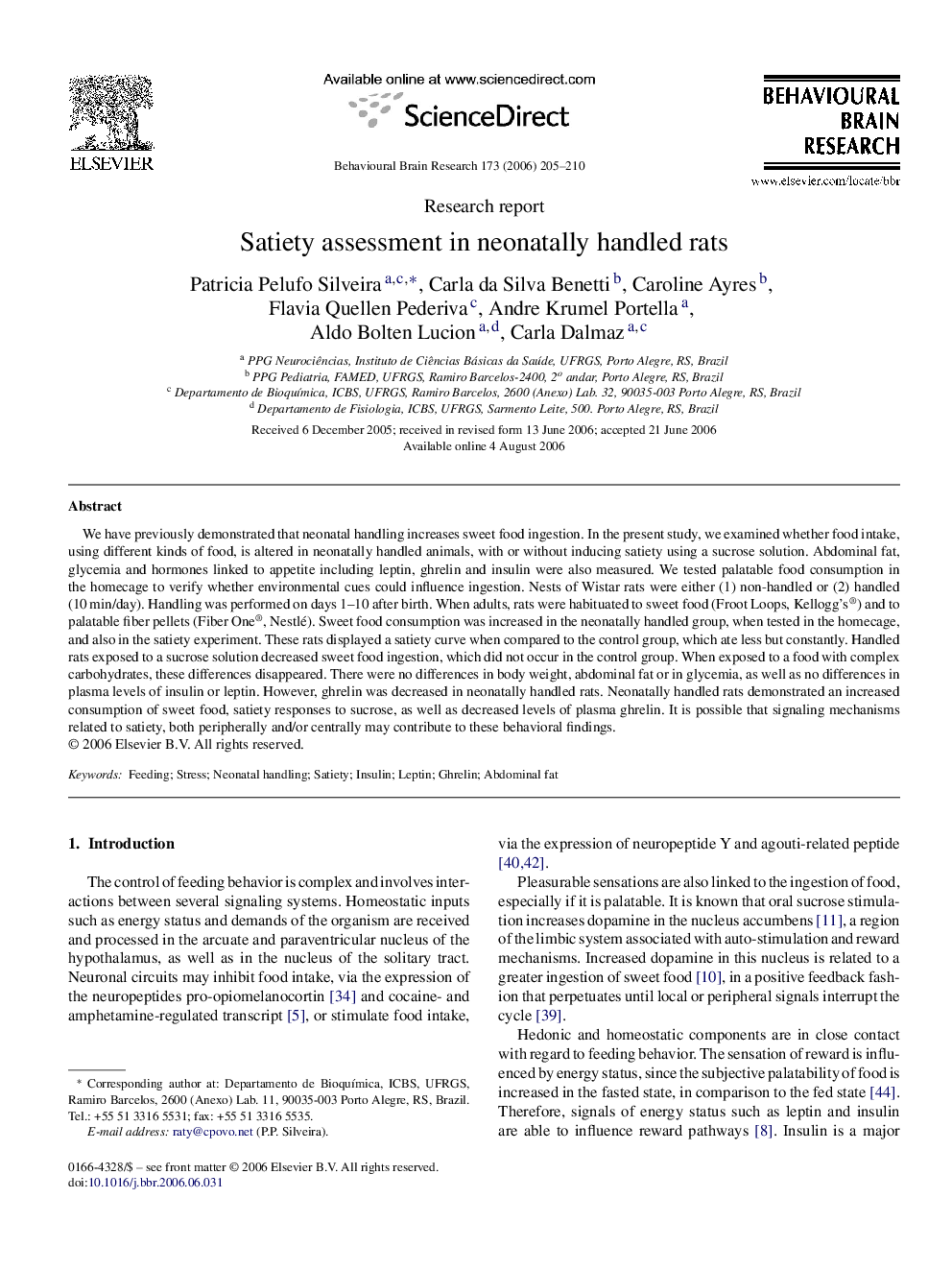| Article ID | Journal | Published Year | Pages | File Type |
|---|---|---|---|---|
| 4316041 | Behavioural Brain Research | 2006 | 6 Pages |
Abstract
We have previously demonstrated that neonatal handling increases sweet food ingestion. In the present study, we examined whether food intake, using different kinds of food, is altered in neonatally handled animals, with or without inducing satiety using a sucrose solution. Abdominal fat, glycemia and hormones linked to appetite including leptin, ghrelin and insulin were also measured. We tested palatable food consumption in the homecage to verify whether environmental cues could influence ingestion. Nests of Wistar rats were either (1) non-handled or (2) handled (10Â min/day). Handling was performed on days 1-10 after birth. When adults, rats were habituated to sweet food (Froot Loops, Kellogg's®) and to palatable fiber pellets (Fiber One®, Nestlé). Sweet food consumption was increased in the neonatally handled group, when tested in the homecage, and also in the satiety experiment. These rats displayed a satiety curve when compared to the control group, which ate less but constantly. Handled rats exposed to a sucrose solution decreased sweet food ingestion, which did not occur in the control group. When exposed to a food with complex carbohydrates, these differences disappeared. There were no differences in body weight, abdominal fat or in glycemia, as well as no differences in plasma levels of insulin or leptin. However, ghrelin was decreased in neonatally handled rats. Neonatally handled rats demonstrated an increased consumption of sweet food, satiety responses to sucrose, as well as decreased levels of plasma ghrelin. It is possible that signaling mechanisms related to satiety, both peripherally and/or centrally may contribute to these behavioral findings.
Related Topics
Life Sciences
Neuroscience
Behavioral Neuroscience
Authors
Patricia Pelufo Silveira, Carla da Silva Benetti, Caroline Ayres, Flavia Quellen Pederiva, Andre Krumel Portella, Aldo Bolten Lucion, Carla Dalmaz,
